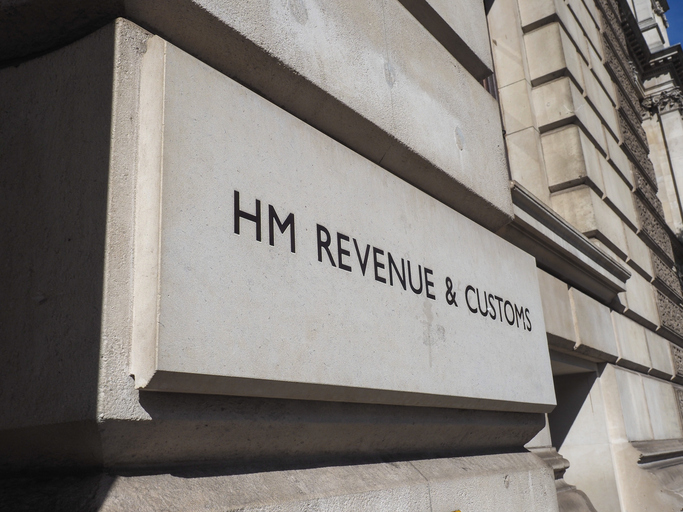Employee Misclassification & IRS Whistleblower Program
Reporting employee misclassification to the IRS via the whistleblower program offers individuals the opportunity to spotlight tax non-compliance while potentially receiving a reward. This mechanism underscores the importance of ensuring workers are accurately classified for tax purposes.
May 14, 2025

This information is provided for educational purposes only by Kohn, Kohn & Colapinto and does not constitute legal advice. No attorney-client relationship is created by accessing this content. Laws and regulations may change, and this material may not reflect the most current legal developments. If you believe you have a whistleblower claim, consult a qualified attorney to discuss your specific circumstances.
Some employers misclassify workers as independent contractors instead of employees to avoid paying payroll taxes, unemployment taxes, or complying with other labor laws. Misclassification can result in underreporting of employment taxes, leading to lost revenue for the government.
If you know of a situation where a company is illegally misclassifying employees, you may be eligible for a reward under the IRS Whistleblower Program. Continue reading to learn more about this program, and to determine whether or not you qualify.
What are some examples of employee misclassification?
Employee misclassification typically occurs when employers incorrectly (and intentionally) categorize workers, affecting their rights and benefits.
Here are some common examples:
- Independent Contractors vs. Employees – the most common example is classifying a worker as an independent contractor when they should be an employee. This can lead to the denial of critical benefits such as health insurance, overtime pay, and workers’ compensation coverage.
- Exempt vs. Non-Exempt Employees – some employers may incorrectly classify workers as exempt from overtime and minimum wage requirements when their duties and pay don’t meet the exemption criteria.
- Temporary or Part-Time Employees – workers might be labeled as temporary or part-time to avoid offering full-time benefits or to avoid certain labor law requirements.
- Interns – companies misclassify workers as unpaid interns, when in reality, the nature of their work and their role in the company requires them to be paid as employees.
- Volunteers – in some cases, workers are classified as volunteers in non-profit settings when they should be compensated for their roles, especially if their duties aren’t truly voluntary or they’re performing tasks typically reserved for paid employees.
These are just a few examples, and the implications of misclassification can be much more significant for the worker (in terms of lost benefits and protections) and the employer (in terms of potential legal liabilities and penalties).
Does the IRS Whistleblower Program Cover Employee Misclassification?
The IRS Whistleblower Office pays money to individuals who blow the whistle on those who fail to pay the tax they owe. If the IRS uses information they provide and it results in the collection of unpaid taxes, penalties, and interest, you may be eligible to receive a reward.
Some things to note about the rewards program as it pertains to employee misclassification:
- The amount of the reward can range from 15% to 30% of the collected proceeds if the taxes, penalties, interest, and other amounts in dispute exceed $2 million.
- If the non-compliant taxpayer is an individual, they must also have an annual gross income of more than $200,000 for you to qualify for these percentages.
- There’s also a provision for smaller rewards (up to 15% with a cap of $10 million) if the dispute is less than $2 million or if the individual’s gross income is below the aforementioned threshold.
The IRS is known for strong confidentiality and will protect your identity as a whistleblower to the fullest extent allowed by law. However, in certain situations, your identity might be revealed, such as when you are needed as a witness in a court proceeding or when filing for an award.
Protections from Retaliation
The Taxpayer First Act, enacted in 2019, provides protection to whistleblowers against retaliation from their employers. If you face retaliation for providing information to the IRS, you might be entitled to legal remedies, such as job reinstatement or back pay.
How To Blow the Whistle on Employee Misclassification
You can submit a claim for the whistleblower reward by filling out IRS Form 211, “Application for Award for Original Information”. It’s important to provide specific and credible details regarding the alleged employee misclassification.
However, if you believe you have information about an employer misclassifying workers and evading taxes, it’s essential to consult with an IRS whistleblower attorney or a professional familiar with the IRS whistleblower program to ensure you follow the proper procedures and protect your rights.
If you’d like to blow the whistle, contact our firm today for a free confidential case evaluation. Our team is behind some of the largest rewards in history and can help walk you through the process from start to finish.
Our Firm’s Cases

$104 Million Reward
As an international banker at UBS in Switzerland, Bradley Birkenfeld exposed a massive tax evasion scheme, leading UBS to disclose over 4,450 U.S. tax evaders and pay a $780 million fine to the IRS. He was awarded $104 million by the IRS for his information.

$98 Million Award
The tax whistleblower exposed major international illegal tax schemes for offshore banks. This whistleblower’s allegations led to 387 US payers getting caught red-handed, having stashed millions in illegal offshore accounts.

$100 Million Exposed
Alex Cherpuko, a 21-year-old whistleblower at the time, exposed a $100 million criminal enterprise, securing a $69.6 million judgment and becoming the first to simultaneously use False Claims Act, Dodd-Frank Act, and IRS whistleblower laws.





